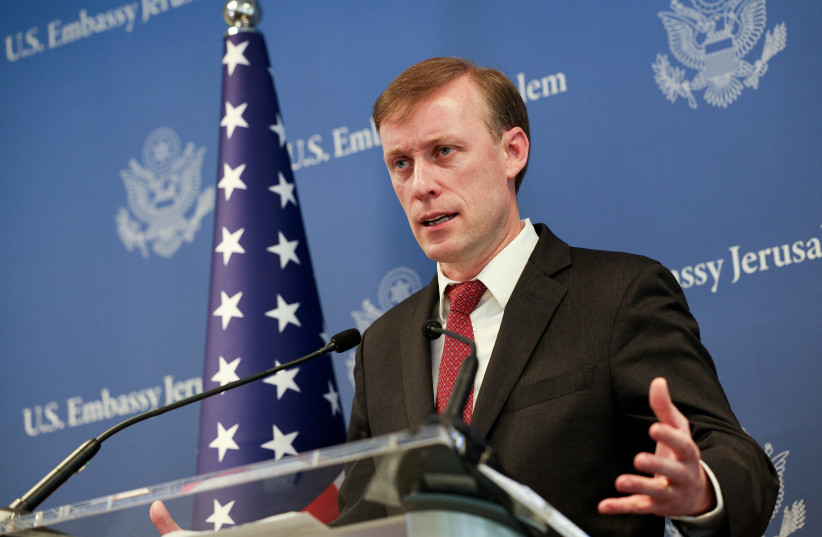US and Israeli intelligence agencies are examining new information regarding computer models made recently by Iranian scientists, which can be used for the research and development of nuclear weapons, according to two senior officials in the US administration and two senior Israeli officials.
The purpose for which the computer models were prepared is not clear. Some US and Israeli senior officials say the new information is a worrying signal of Iran's ambitions to obtain nuclear weapons.
But other senior officials on both sides say that this is an isolated case, which does not represent a change in Iran's policy and strategy for obtaining nuclear weapons.
Iran has repeatedly denied that it is interested in nuclear weapons.
Senior US and Israeli officials will meet on Thursday at the White House for a meeting of the US-Israel Strategic Working Group (SCG) to discuss the state of the Iranian nuclear program and other issues.

This will be the first high-level discussion between the US and Israel that will deal in depth with the Iranian nuclear program since March 2023.
A senior Israeli official said that after the intelligence debacle surrounding the October 7 Hamas attack on Israel, Israeli intelligence is looking more seriously than usual at every shred of information about potential Iranian moves toward nuclear weapons.
The US national intelligence assessment in 2007 determined that Iran has not had an active military nuclear program since 2003. US officials said that this assessment has not changed to this day.
Two senior US and Israeli officials said that the intelligence agencies of the two countries have no indication that Iran's Supreme Leader Ali Khamenei has ordered the renewal of the military nuclear program.
The White House and senior officials around Prime Minister Benjamin Netanyahu refused to comment.
Last March, journalist Nadav Eyal reported in Yediot Ahronoth that Iran is working to obtain some components needed to produce a nuclear warhead, such as precision explosives.
"If Iran is now taking preliminary steps to help build a nuclear warhead, it contradicts the long-standing consensus of US intelligence that they stopped trying to develop nuclear weapons in 2003," said Mark Dubowitz, executive director of the Foundation for the Defense of Democracies in Washington.
Enriching uranium
Documents found in the Iranian nuclear archive, taken by the Israeli Mossad in 2018, showed that Iranian nuclear scientists were working on computer models of a nuclear explosion before 2003.
In early May, former Iranian Foreign Minister Kamal Harazi spoke out in an unusual way about the possibility of Iran producing nuclear weapons. "We have no decision to build a nuclear bomb, but if Iran's existence is threatened, there will be no choice but to change our nuclear doctrine," he was quoted as saying by the Iranian news agency ISNA.
A report by the International Atomic Energy Agency (IAEA) from the end of May stated that Iran has approximately 142 kg of uranium enriched to the level of 60% - an increase of more than 20 kg since the previous report in February.
Iran will need only a few weeks to enrich this amount of uranium to the level of 90% - that is needed for a nuclear weapon, according to the estimates of the US and Israeli intelligence agencies. Iran would need about 42 kg of uranium enriched to the level of 90% to produce one nuclear bomb.
A senior US official said that there are no concrete conclusions yet regarding this new intelligence, but it raises questions that should be discussed between the US and Israel.
The US side will be led by the White House's National Security Advisor, Jake Sullivan, and the Israeli side by the Minister of Strategic Affairs, Ron Dermer, and the National Security Advisor, Tzachi Hanegbi.
The meeting is the result of Sullivan's last visit to Israel a few weeks ago. During his meetings in Jerusalem, Netanyahu and his aides asked for an in-depth discussion on the state of the Iranian nuclear program.
"Both the US and Israel think this is a good time to talk about this, to discuss how we interpret Iran's actions and coordinate what to do," said a senior US official.
As part of the 2015 nuclear agreement that Iran signed with the US and other powers, it pledged not to engage in activities that are part of the planning and development of nuclear weapons, including the use of computer models to simulate nuclear explosions.
In recent months, the US and Iran have held indirect talks mediated by Oman in order to try to reach informal understandings regarding the temporary restraint of the Iranian nuclear program.
These efforts were the reason the US tried to convince France, Britain, and Germany not to move forward with a condemnation resolution against Iran at the IAEA's executive board two weeks ago over Iran's non-cooperation with UN inspectors, US officials said.
The US feared that such a move would damage the indirect negotiations with Iran and push the Iranians to escalate their nuclear program, US officials said.
After the condemnation resolution passed the IAEA board of directors, Iran responded by installing new and more advanced centrifuges at the underground uranium enrichment facility at Fordo.
